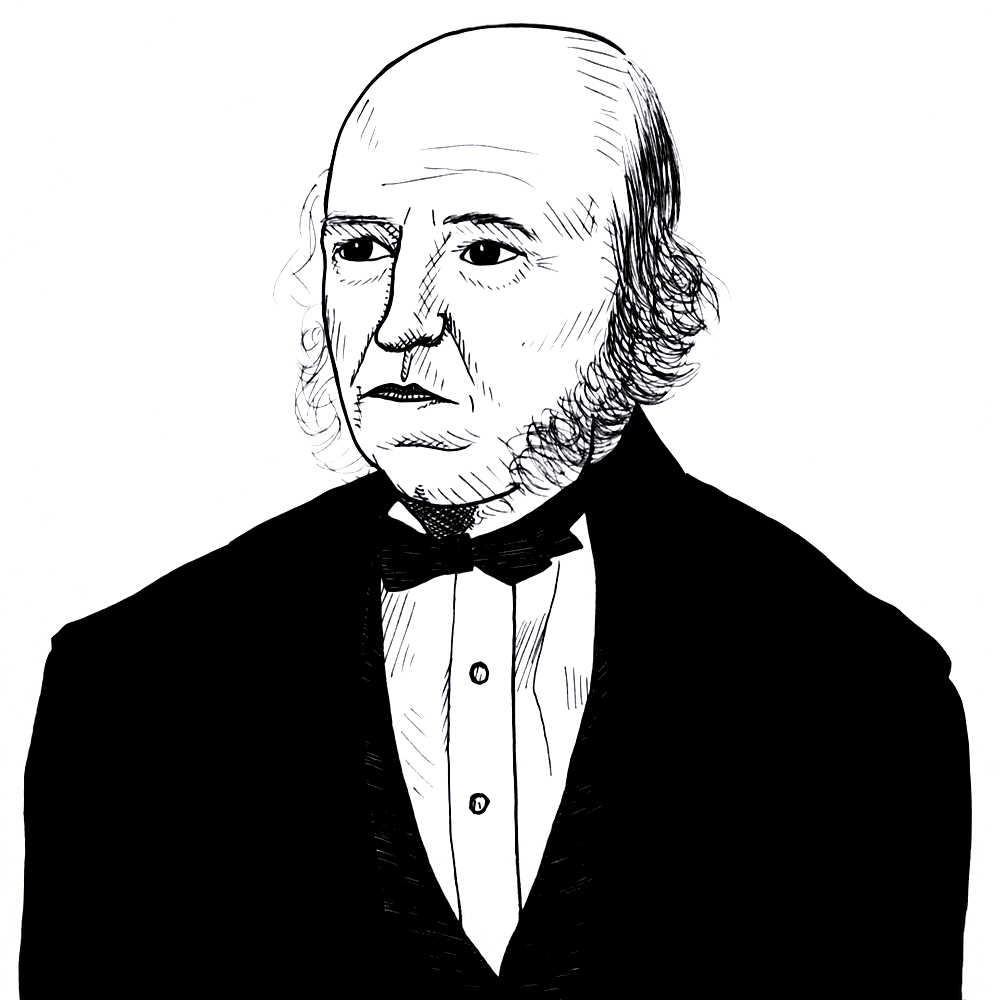
Herbert Spencer on the pitfalls of arguing with friends at the dinner table (1897)
Found in: The Principles of Ethics, vol. 2 (LF ed.)
The English radical individualist philosopher Herbert Spencer (1820-1903) wisely counsels silence when arguing with others at the dinner table. Sometimes it may be fit and proper to blow one’s own horn. At other times biting one’s tongue when a family member says something foolish or incorrect is the best way to promote “social intercourse”:
Food & Drink
Over the dinner table, or in groups of persons otherwise held together, there frequently occur cases in which an erroneous statement is made or an invalid argument urged. One who recognizes the error may either display his superior knowledge or superior logic, or he may let the error pass in silence: not wishing to raise the estimate of himself at the cost of lowering the estimate of another. Which shall he do? A proper decision implies several considerations. Is the wrong statement or invalid argument one which will do appreciable mischief if it passes uncorrected? Is the person who utters it vain, or one whose self-esteem is excessive? Is he improperly regarded as an authority by those around? Does he trample down others in the pursuit of applause? If to some or all of these questions the answer is–Yes, the correction may fitly be made; alike for the benefit of the individual himself and for the benefit of hearers. But should the error be trivial, or should the credit of one who makes it, not higher than is proper, be unduly injured by the exposure, or should his general behavior in social intercourse be of a praiseworthy kind, then sympathy may fitly dictate silence–negative beneficence may rightly restrain the natural desire to show superiority.